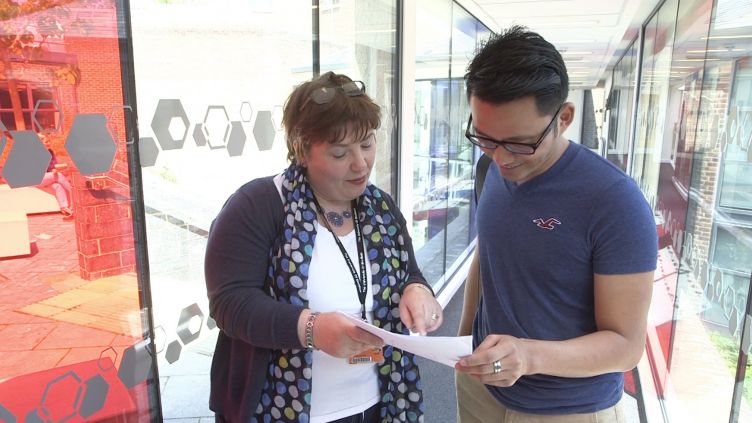Applying and your research proposal
Guidance on writing your research proposal and submitting your PhD application.
PhD applications to the School of History, Philosophy and Digital Humanities are managed through the University's online application system, and are assessed in line with the University's student admissions and equal opportunities policies.
Before you apply
Entry requirements
When assessing PhD applications, we take into account an applicant's academic background (including references and academic transcripts), the nature of the project and quality of the research proposal, as well as the capacity of the history and archaeology team to offer appropriate supervision over the duration of the PhD.
In terms of academic entry requirements, applicants should normally have a suitable MA in History with a research-training element. The quality of performance at MA level will be taken into account when considering potential for PhD study.
We also normally expect applicants to have achieved a 2.1 or equivalent in a Bachelors degree in history or a related subject (i.e. English, languages, politics, philosophy, archaeology or journalism) from a recognised UK or overseas university.
If you are an international student, you need to provide proof of English Language proficiency with a minimum IELTS score of 7.0 with no less than 6.5 in each component (or equivalent).
Contacting your proposed supervisor
We encourage you to contact the member of staff that you would like to work with before you submit an application. Find a supervisor here.
If you are planning on applying for funding, it is particularly important to start discussions with your potential supervisor as early as possible, giving you plenty of time to work on your ideas for the research project and get their advice on how to shape it into a strong proposal.
You can also contact Beky Hasnip, Admissions Manager, and Colin Reid, PGR Programme Lead (History & Archaeology), at history@sheffield.ac.uk for more general advice.
Writing your research proposal
Your research proposal is a very important part of your PhD application. It should clearly explain what you aim to achieve with your proposed research and what sources and methodology you will use. This helps us to understand your project and assess its suitability for successful research at PhD level. This information will also ensure that you find the best supervisor to support your research.
Visit our find a supervisor page to help you identify suitable staff members in your intended field of research. Staff will be happy to help you formulate and develop your research proposal. If you would like advice on who to approach, contact Beky Hasnip, Admissions Manager, and Colin Reid, PGR Programme Lead (History & Archaeology), at history@sheffield.ac.uk.
Your proposal should normally be in the region of 1,000 words (separate advice will be provided for funding applications, where you will usually have c. 700-800 words). You should write as concisely and precisely as possible.
The proposal is a starting point. If we offer you a place on the PhD programme, you will be able to work the proposal through with your supervisor in more detail during the early stages of your research.
A good proposal explains three things:
- The originality of the research. How is your project different from existing work in this field? How does it relate to, and develop, the existing scholarship?
- The significance of the research. It is not enough to fill in a 'gap' in our knowledge – why does your topic matter, and why will it be of interest to scholars in the field? What larger issues does it engage with?
- The feasibility of your research. Can your project be completed in three years? What sources will you use, and what methodology or conceptual approaches will you employ?
See our full research proposal guidance
Making an application
To apply to study for a PhD with us, you will need to make a formal application using the University’s online application form. You should select that you are applying for the Standard PhD in the School of History, Philosophy and Digital Humanities.
We will begin to process your application once we have received all of the required details and supporting documents, including a research proposal.
At least two members of academic staff consider each application. This usually includes your proposed supervisor, who provides initial feedback, and the PGR Programme Lead (History & Archaeology). Other colleagues maybe consulted on a case-by-case basis. We may invite you to attend an interview as part of this process.
We consider all applications as quickly as possible and will usually be in touch within 4 weeks.
Submitting your application checklist
- I have a first degree at 2:1 or equivalent
- I have, or am currently working towards, a Masters level qualification
- English is my first language or I have an overall IELTS grade of 7.0 with a minimum score of 6.5 in each component
- My research proposal is ready to upload
- Proof of current and previous degrees, academic references, English language certificates (if required), and CV are ready to upload

